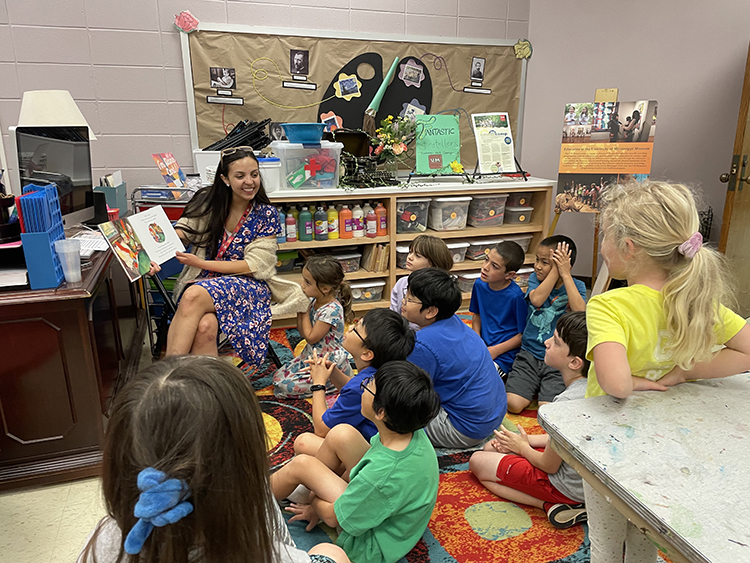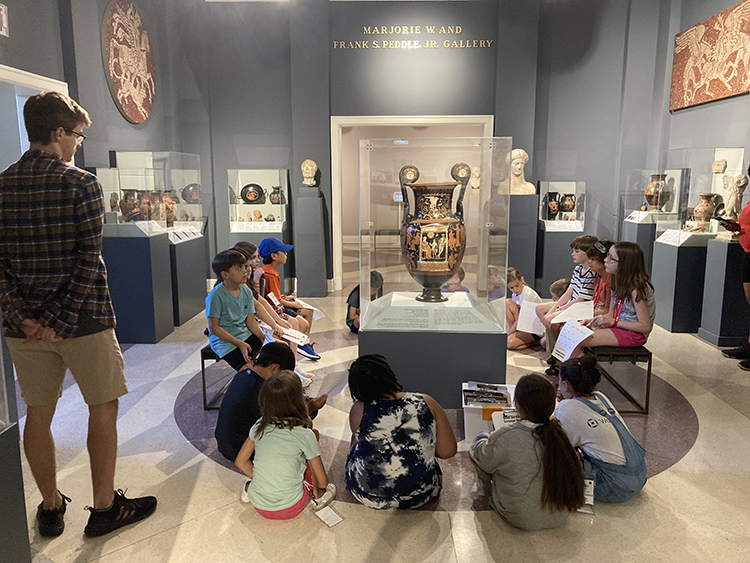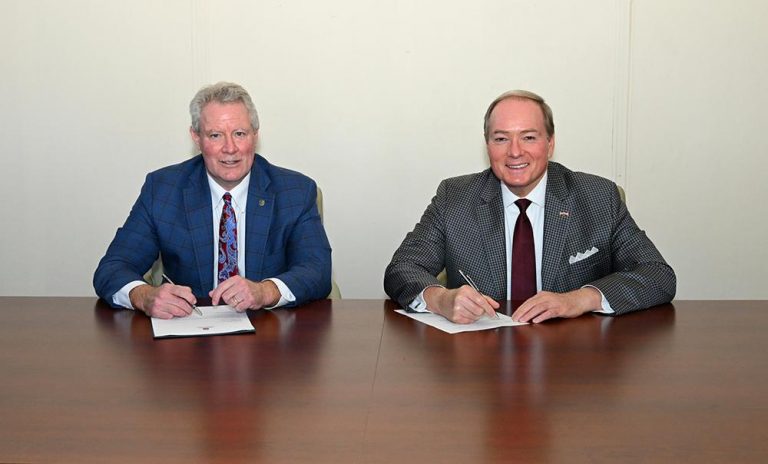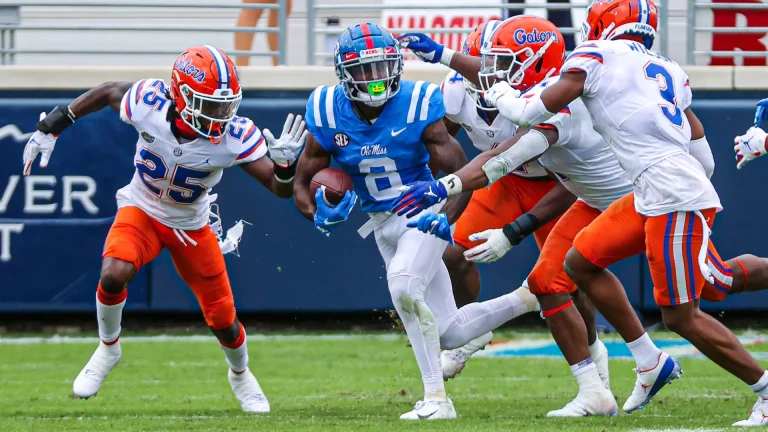
Rosa Salas Gonzalez (left), museum educator at the University of Mississippi Museum, reads to students during the recent Fantastic Storytellers camp, in which children grades 1-5 learned how to tell and illustrate a compelling story. The museum is offering several more camps throughout the summer. Submitted photo
Programming highlights interdisciplinary learning for children
This summer, the University of Mississippi Museum is offering a variety of learning opportunities for children in first through fifth grades during June and July.
“With all of our camps, I’m trying to connect them to some cross-curricular content,” said Rosa Salas Gonzalez, museum educator. “We want to let them do things they’re comfortable with, but also push them to be creative.”
The Artful Science Camp, June 26-30, 2023, will combine science, technology, engineering, and math with art. The camp starts off each day with a science experiment before applying the principles to the creation of art, Salas Gonzalez said. Students will learn to create cyanotypes, a sun-based method of photography, and use splash art to understand velocity, among other projects.
At the Foodies Club Camp, July 10-14, campers will pair with a local chef and use edible ingredients to create art, food sculptures and meals.
Students will travel the globe in the World Explorer’s Camp, July 17-21, where they will learn about traditions, cultures, and art in different regions, Salas Gonzalez said. This year, the camp will focus on North, South, and Central America alongside Africa, the Middle East, Europe, and Asia.
Babies and toddlers ages 2-5 can get in on the fun, too. The Mini Masters: Treasured Toy Box Camp, July 24-28, will allow a parent- or guardian-accompanied child to create art inspired by the museum’s Roman and Greek collection and learn about Japanese-American artist Jacob Hashimoto.
Each camp opens at 9 am and closes at noon, and each student group will also tour a department of the university and spend one day on a field trip. Sign-up is open at the museum’s website.
Combining art with a secondary discipline such as math or history can make learning more approachable for students, Salas Gonzalez said. Students who may not learn as easily in the classroom can sometimes understand through practical application.
“We have to be more conscious about making learning more engaging to kids,” Salas Gonzalez said. “Physically being involved in the process of creating something, it makes it more interesting to them.”
During the camps, students will also peruse museum exhibits and see examples of art from its collection, she said.
Ole Miss students help run each camp, which Salas Gonzalez said allows them to build public speaking skills while learning about the museum. The museum’s student interns get practice in giving tours and build confidence in their ability to teach.
“This brings in the community and lets the younger generation get involved with the exhibits and the museum,” said Andrea Drummond, the museum’s membership, events and communications coordinator. “It gives a different view of the university through the lens of art and culture and history.”
Community volunteers are welcome to help with summer programming. Contact Salas Gonzalez at rvsalasg@olemiss.edu for information on volunteering.
By Clara Turnage





